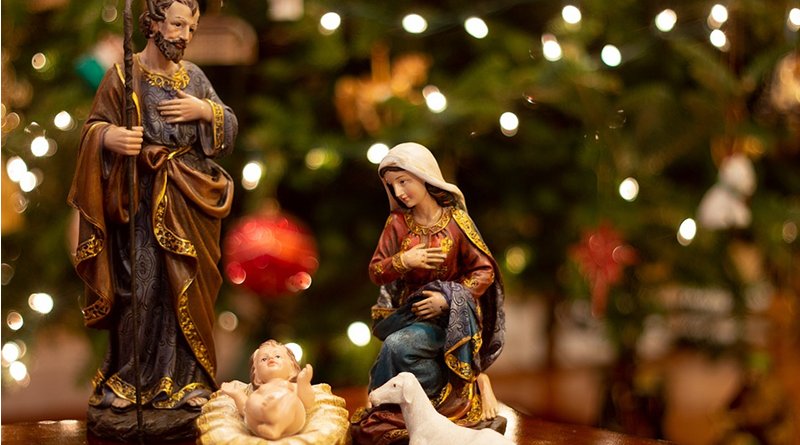Nativity Plays Have A Secure Future – Because Children Love Them
As schools up and down the country prepare for their nativity plays, Aston University has been researching their future by asking the people who matter: the children.
Dr Céline Benoit, who spent a year researching at a Birmingham primary school, has concluded that Christmas nativities are here to stay, not least because the pupils “absolutely love” them.
Dr Benoit, a senior teaching fellow in sociology and policy at Aston University, spoke about her work in the latest episode of the ‘Society matters’ podcast series, presented by journalist Steve Dyson. Her main focus was on how children encounter religion in primary schools, with nativities, worship, and religious education (RE) all playing key parts in her research.
She said: “Children take what they want from nativity plays. They may or may not see it as a religious festival or celebration. But regardless of their interpretations, most children absolutely love them! They are fun, exciting, and they take them out of the classroom.
“For a lot of children, Christianity isn’t a religion per se, it’s more about having fun with your friends, and fostering that sense of togetherness, rather than celebrating the birth of Jesus.”
That view was shared by children when asked what they thought of assemblies which ended with a school prayer.
Dr Benoit said: “Most of the children I spoke to told me they didn’t see the school prayer as being Christian at all. Now that’s amazing when you take into account the fact that the prayer started with ‘Dear God’ and ended with ‘Amen’! But as Megan explained to me: ‘It’s not ‘God-God’, it’s any god.’
“Some children even said to me it’s not even religious at all, and that ‘god’ was just a noun to reach out to anyone they want to reach out to. You could be speaking to angels, to anyone you love, your nan, your dead grandad and so on.”
Dr Benoit said the big issue was the actual place of religion in the school: “What does it mean when we are doing nativity plays, is it really about celebrating Christianity, and the birth of Jesus? What my research suggests is that it’s not the case. Instead, what happens is that a certain form of Christianity – we might call it a liberal form of Christianity if you like – is viewed as entwined with Englishness.
“Rather than being perceived as Christian festivals, nativity plays are viewed as a cultural performance. In fact, if you think of Christmas films, it’s not rare to see a nativity play happening in the background at some point. So regardless of your religious or non-religious background, you’re likely to expect your young child to perform in a nativity play at some point because it’s heart-warming for families, and it’s part of English culture.”
Dr Benoit said non-Christian religions were taught in schools but often in the context of religious education classes. Her research shows that although lessons contribute to children remembering some key facts about ‘world religions’, they do not equip them with a deep understanding of what it means to actually celebrate Passover, Diwali or Eid.
She said children needed to be consulted about what they have to say and want to get from RE. Although there are ongoing discussions about moving away from RE and towards ‘religion and worldviews’, children and young people were not involved in the conversations.
“It’s not just about renaming the subject, we want to move away from the existing RE syllabus. We need to make room for the real lived experiences of religious communities.”
And what about the future of nativity plays. Are their days numbered? Dr Benoit concluded: “There’s no way any UK government would want to pursue that or to legislate for that! Who wants to be known as the government that cancelled Christmas in schools?
“Besides, if we listen to children, they just love it too much! This is really special for them – it’s a cultural experience, it fosters a lovely sense of community. Who wants to take that away from them?”

